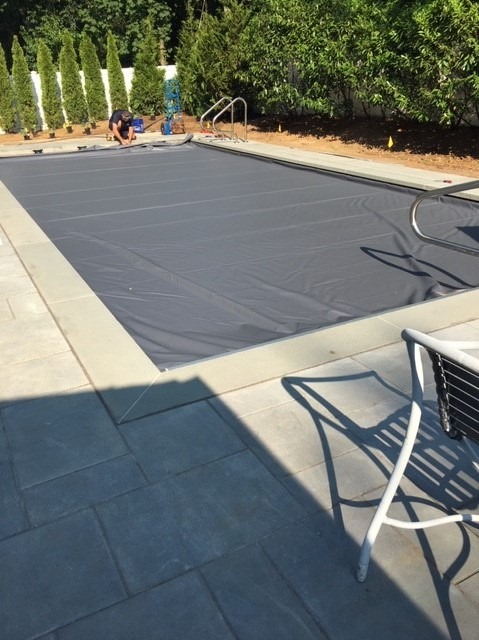As the summer days gradually wind down and autumn is about to begin, it becomes necessary to prepare your swimming pool for the winter. One of the major reasons for this is to prevent frost damage. Hence, pool winterization is an important task that needs to be done before the onset of the winter season.
Overview of why pool winterization is important to the health and lifespan of your pool
The cold weather characterized by the winter months can be rather dangerous for your pool. For one thing, the water pipes could get frozen and these frozen water pipes could explode thereby causing damage to your pump and filters. Needless to say, that damage will cause quite a pretty penny to fix.
In severe weather, your pool may experience frost cracks which can lead to leakage. With appropriate winterization procedures, this outcome can prevented.
The winter season could potentially cause damage to your swimming pool equipment and not carrying out winterization techniques could bring about a buildup of lime and algae in the pool.
If you do not prepare your pool for the winter, you could end up having problems that are expensive and difficult to repair. Take the time to close your pool properly before the onset of winter and you will find it much easier to re-open it for use in spring time.
If you have a saltwater pool, you might wonder if there are any special steps that you should take, besides the conditioning techniques for the winter. The steps for preparing a saltwater pool are not so different from those of the traditional chlorine pools. The main difference lies in balancing the water levels before closing for the winter.
The prevailing weather conditions will, to a large extent, play a role in determining the amount of winterization your pool needs.
If you live in one of the sunnier climes of the world, say Florida, you pretty much have the luxury of being able to use your swimming pool all year round (unless, of course, winter temperatures reach freezing levels).
If on the other hand, you often experience long cold winters in your locality, you must follow through on the basic winterization steps.
Now, as to the question of what winterization procedures to actually implement, you need to know that each pool is different, as there are different sizes, shapes and types of winterization chemicals/tools available, but the fundamental steps for the preparation of swimming pools for the winter are the same.
However, they can be summed up thus;
1) Balancing the pool’s pH/chemistry – Test the pool water using suitable equipment and follow the instructions for measuring the water’s pH.
Typically, it should be between 7.2 and 7.6, alkalinity of 80 to 120 parts per million (ppm), calcium hardness of 175 to 250 ppm and the chlorine between 1 and 3 ppm.
Make sure all the necessary chemicals are balanced in your pool by using the appropriate conditioning equipment
2) Cleaning the pool – Clean the pool using brushes, nets, vacuum etc to remove leaves and insects from the water surface. Use a skimmer net to remove leaves, rocks and other debris from the bottom of the pool.
Get as much dirt as possible out of the pool. Add algaecide to the water in the recommended quantity taking your pool size into consideration.
3) Lowering the water level/draining the equipment – Dry and store all pool toys, chemicals, ladders and pool cleaning accessories in a garage, tool shed or basement.
Leaving these items under a deck or outside near the pool throughout the winter makes them susceptible to damage from moisture, freezing and thawing.
4) Closing the pool for the winter – The last step in pool winterization is covering the pool. Do this preferably with a winter cover. A good winter cover protects the pool from algae and protects your pool from matter carried by the wind during storms or hurricanes.
One way to go about this is to use a chemical winterizing kit that has everything you need to successfully complete this process.
The pool winterizing kits often come in measured kits for various pool sizes. A typical winterizing pool chemical kit usually includes chlorine shock, chemical float and oxidizer, an algaecide, stain prevention chemicals etc.
Whatever type of pool you own (inground pool, semi-inground pool or a roof-top pool), the fundamentals are generally the same. This service can be easily performed by trained professionals who will oversee the entire process for you and elongate the longevity of your pool.
Performing winterization on your pool will also safeguard against any breakages or leaks and prevent any damage to the filtration system.



